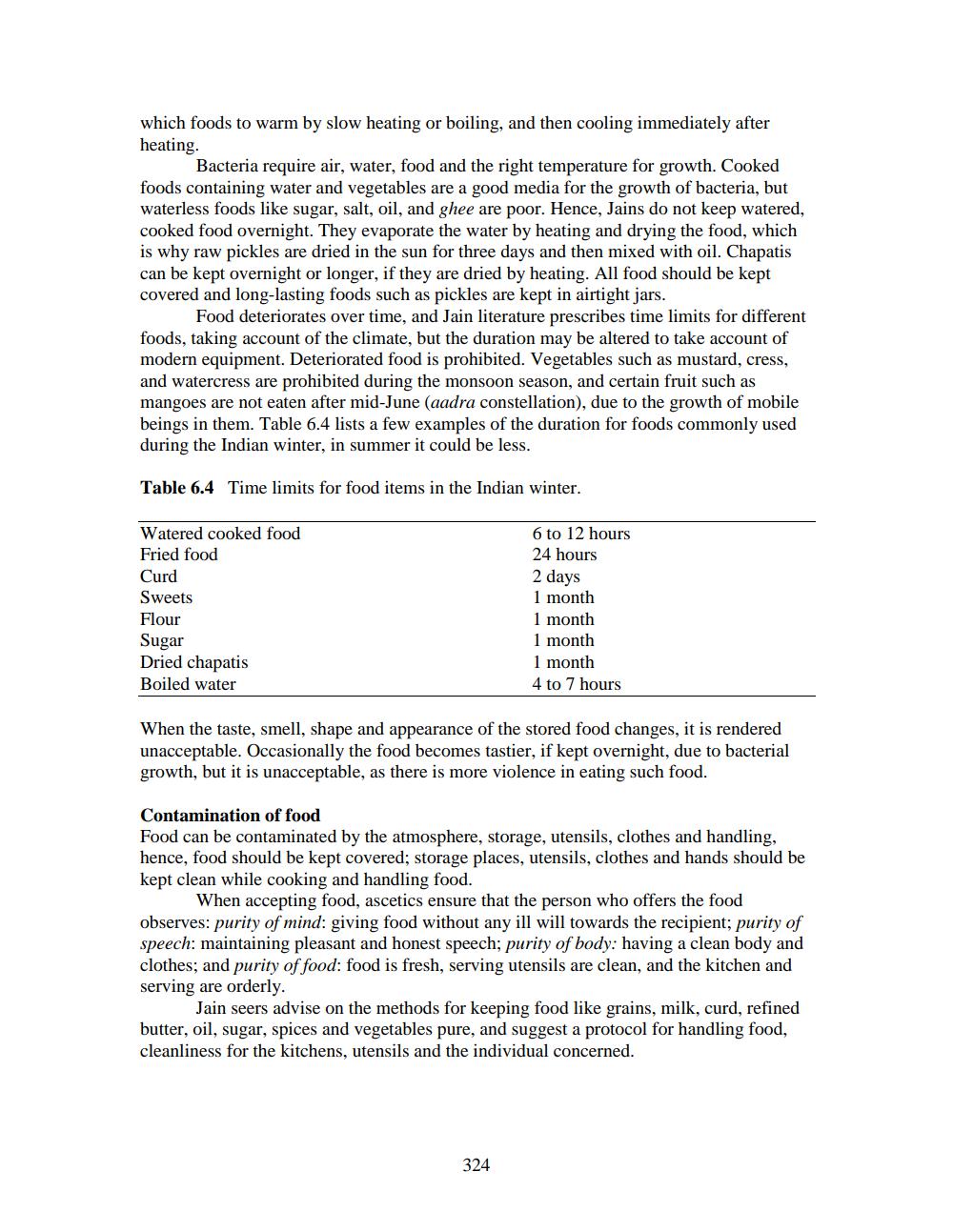________________
which foods to warm by slow heating or boiling, and then cooling immediately after heating.
Bacteria require air, water, food and the right temperature for growth. Cooked foods containing water and vegetables are a good media for the growth of bacteria, but waterless foods like sugar, salt, oil, and ghee are poor. Hence, Jains do not keep watered, cooked food overnight. They evaporate the water by heating and drying the food, which is why raw pickles are dried in the sun for three days and then mixed with oil. Chapatis can be kept overnight or longer, if they are dried by heating. All food should be kept covered and long-lasting foods such as pickles are kept in airtight jars.
Food deteriorates over time, and Jain literature prescribes time limits for different foods, taking account of the climate, but the duration may be altered to take account of modern equipment. Deteriorated food is prohibited. Vegetables such as mustard, cress, and watercress are prohibited during the monsoon season, and certain fruit such as mangoes are not eaten after mid-June (aadra constellation), due to the growth of mobile beings in them. Table 6.4 lists a few examples of the duration for foods commonly used during the Indian winter, in summer it could be less.
Table 6.4
Time limits for food items in the Indian winter.
Watered cooked food Fried food Curd Sweets Flour Sugar Dried chapatis Boiled water
6 to 12 hours 24 hours 2 days 1 month 1 month 1 month 1 month 4 to 7 hours
When the taste, smell, shape and appearance of the stored food changes, it is rendered unacceptable. Occasionally the food becomes tastier, if kept overnight, due to bacterial growth, but it is unacceptable, as there is more violence in eating such food.
Contamination of food Food can be contaminated by the atmosphere, storage, utensils, clothes and handling, hence, food should be kept covered; storage places, utensils, clothes and hands should be kept clean while cooking and handling food.
When accepting food, ascetics ensure that the person who offers the food observes: purity of mind: giving food without any ill will towards the recipient; purity of speech: maintaining pleasant and honest speech; purity of body: having a clean body and clothes; and purity of food: food is fresh, serving utensils are clean, and the kitchen and serving are orderly.
Jain seers advise on the methods for keeping food like grains, milk, curd, refined butter, oil, sugar, spices and vegetables pure, and suggest a protocol for handling food, cleanliness for the kitchens, utensils and the individual concerned.
324




